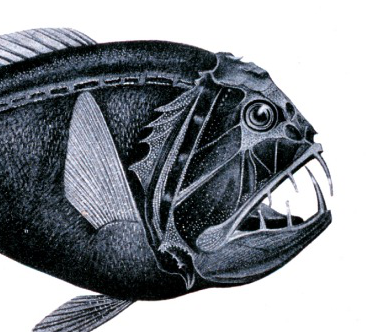Just now I asked my seven-year-old brother to describe the ocean to me in a sentence. He said ‘Well, it’s a really big thing of salty water that has lots of weird stuff living in it’. There you have it – the most basic things we can say about the ocean are:
-
It is a body of water
-
It is really big
-
It is salty
-
Lots of weird stuff lives in it
I then asked my brother which of these features of the ocean were important influences on the earth’s climate. He made a bashful, adorable face that I am having a hard time putting into writing, so instead I’ll just answer for him: all of them are! Water is a special molecule and our planet would be completely different without having lots of it around. The ocean being as big as it is means it can house a global circulation, which redistributes the heat that it absorbs, cooling the tropics and heating the poles. The presence of oxygen in the atmosphere is due to the emergence of oceanic photosynthetic cyanobacteria billions of years ago.
How about the saltiness, though? We know that salty water is denser than fresh water, and that dense water sinks below lighter water. Thus, salinity affects oceanic circulation patterns in areas of strong evaporation, precipitation, river runoff, or glacier melt. But is a salty ocean important for the earth’s climate? Put differently, would we have a different climate system if the ocean were more or less salty than it is today? Have we ignored the potential importance of this basic ocean feature?

An imaginary planet very similar to earth. Could its ability to sustain earth-like life depend on how salty that ocean is? Image courtesy Planetary Habitability Laboratory at UPR Arecibo.
This question is what the authors of the paper we’ll discuss today sought to investigate. Really they were looking at this question in the context of exoplanets – planets outside our solar system – but their results apply just as much to earth’s ocean as they do to any other planet’s ocean. They showed the saltiness of an ocean can substantially change its circulation, which can in turn substantially change how much heat the ocean moves from equator to pole. This redistribution of heat is a key factor in setting the climate of a planet because the equator receives a lot more sunlight than the poles.
There is an Italian expression for how salty pasta water should be – ‘come il mare’, or ‘as the sea’. That’s about 35 grams of salt per kilogram of seawater. ‘Come il Mar Morto’ would be ‘as the Dead Sea’, about 260 grams of salt per kilogram, and ‘come l’acqua fresca’ would be 0 salinity. The authors used an elaborate computer model of an ocean circulation to simulate what ocean circulation would result in these three cases. Besides changing the salinity, everything else was set to be earth-like: temperature, wind, and so forth.

Schematics of the circulations that result from the three experiments described in the paper. The left column is the freshwater-like experiment, the center column is the ocean-like experiment, and the right column is the Dead-Sea-like-experiment. The black lines on the top row depict how the ocean simulation is circulating, while the second row indicates how much heat is transported from equator to pole as a result of each circulation. Note that the ocean-like circulation transports a lot more heat than the other two! This redistribution of heat cools the tropics and warms the poles. Modified from figure 4 from the manuscript (cited above).
It’s a good thing that the ocean isn’t as salty as the Dead Sea, because ‘come il mare’ is a beautiful expression and we wouldn’t be able to tell each other to make pasta water that way if it was. Besides that, though, the climate system might be pretty different too – both the ‘come l’acqua fresca’ simulation and the ‘come il Mar Morto’ simulation produced much weaker equator-to-pole heat transports than the ‘come il mare’ simulation!
The reason this happens is that the density of seawater depends in very complicated interlocking ways on the temperature, salinity, and pressure that the water is at. Freshwater has a different density-temperature relationship and a different density-pressure relationship than water ‘come il mare’ or water ‘come il Mar Morto’, so changing the salinity messes the whole density structure up. The density of water is integral to the circulation because denser water is very good at sinking under water that is lighter than it. Interestingly, once freshwater cools below 4°C it starts getting lighter, because it’s on its way to forming ice, which is lighter than water; salt inhibits this, in the same way that we put salt on the roads in winter in cold places.
In summary, because the density of seawater is a complicated function of salinity, temperature, and pressure, the saltiness of an ocean can change its circulation. In turn, this circulation affects how the ocean redistributes heat, and therefore can impact climate. So we shouldn’t take the saltiness of the ocean for granted, because we could have a very different climate without it, and may have an important role in determining whether other planets have earth-like climates.
Cael was once told by a professor that applied mathematicians are ‘intellectual dilettantes,’ which has been a proud self-identification for Cael since that moment. Cael is a graduate student at MIT & Woods Hole, & studies the ocean from a mathematical perspective; right now Cael is trying to figure out how detailed our measurements of phytoplankton communities can be if we detect them from space. Otherwise, Cael plays accordion, gardens, & reads instead of sleeping like it’s still fifth grade.

